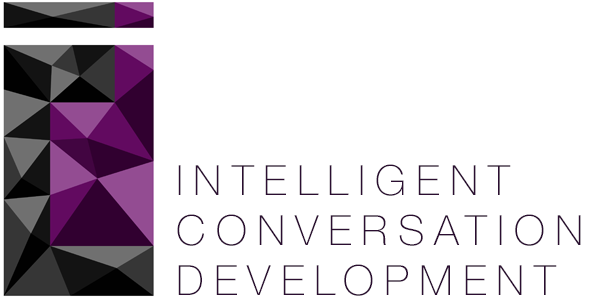Intervention: This is a Safe Space
How many times have you been half way through answering an email when the phone rings?
So what do you do? You pick up the phone and continue answering the email, or maybe you browse the internet, or you notice there is cake in the break room. Don’t worry, everyone has done this at some point, you’re not alone. We are a society dominated by multitasking. This would be impressive if it wasn’t so dangerous and unproductive.
Nowadays everything is designed so we can do several things at once. Take our smart phones for example; you can browse Reddit while listening to a pod cast, as well as bidding on those jeans you want on eBay and sending friend’s Snapchats of your every move. They have become our Swiss Army Knives that we never leave behind.
“Our brains are not wired to multitask well… When people think they’re multitasking, they’re actually just switching from one task to another very rapidly. And every time they do, there’s a cognitive cost in doing so.” - Earl Miller, Neuroscientist at MIT and world expert on divided attention.
This is your Brain on Multitasking
Neuroscientist Glenn Wilson investigated the effects of Marijuana on the brain. His research shows that Cannabis activates the dedicated Cannabinol receptors which greatly interferes with memory and our ability to concentrate on several things at once. I can hear the judgmental sighs targeting our societies space cadets now, however, Glenn went on to show that the cognitive loss from multitasking is twice as impactful on your abilities as smoking weed; scary right! For a non-smoker, this is the equivalent of losing a whole night’s sleep.
‘Only 2% of the population can actually multitask effectively. The other 98% are being unproductive’
Multitasking is dangerous. Switching from one task to another stimulates the novelty and reward seeking center of the brain causing a burst of endogenous opioids to be released (and it feels amazing). In fact multitasking creates a dopamine-addiction feedback loop which rewards the brain for losing focus and searching for external stimuli.
The irony is, the part of our brain which is meant to maintain focus is easily distracted. We rely on our Prefrontal Cortex (PFC) to keep us focused and engaged in tasks, although it has a novelty bias which means it enjoys new information so will gladly wonder off if there is something new. This goes back to our caveman days where new information could be life or death so we had to pay attention, not like today when we get notified that Claire has updated her Facebook status or someone has followed you on twitter.
‘New is always bad! Never not be afraid’- Grug, The Croods (2013).
So What? Everyone’s Doing It!
While you switch from your emails, to your Instagram then back to LinkedIn you are burning up oxygenated glucose in your PFC and striatum. This happens at such a fast rate compared to if you were focusing on only one task, that you can feel mentally exhausted and can become disorientated. Multitasking also increases the production of the stress hormone Cortisol. This over stimulates your brain, leading to scrambled thoughts and can also cause you to become aggressive and impulsive. Multitasking compromises both your cognitive and physical performance.
‘Trying to focus on more than one thing at once causes a 40% drop in productivity’
Neuroscientist, David Meyer, designed an experiment to determine the effects of multitasking. He asked two groups to work between solving math problems and identifying shapes. The group told to switch between the two tasks had decreased speed and accuracy compared to the group with only one task. It was recorded that multitasking added 50% more time to solving a problem.
‘Mono-tasking will be the new multi-tasking; only more efficient and subsequently more productive.’ –David Meyer.
New York research firm, Basex, found that employees spend an average of 11 minutes on a project before being distracted. It then takes 25 minutes to return to the original task if at all. It was also found that people switch activities every 3 minutes and an average employee using a computer is distracted every 10.5 seconds.
‘2.1 hours a day are lost by an average desk employee due to distractions or interruptions. That’s 546 hours a year.’
I’m Not an Addict, I Can Quit Whenever I Want
I just won’t look at my phone when it goes off or check my email the second it comes in, I’ll wait until I’ve finished my task. This should be easy right? WRONG!
Glenn Wilson found that just by having the opportunity to multitask affects our cognitive performance. His research shows that when you are focusing on a task and an email is sitting unread in your inbox it can reduce your IQ by 10 points. This phenomenon is called ‘Info mania’.
First Step to Recovery: Admitting you have a Problem
In contrast to multitasking, when you stay focused on one task without distractions it uses less energy, reducing the brain's need for glucose. You can work more efficiently for longer before burning out. Removing distractions will also help your wondering PFC; giving you a longer attention span, the capacity to plan effectively and more importantly the ability to contemplate possibilities.
Challenge Accepted!
I challenge anyone who reads this to try focus on a single task for half an hour. That means no calls, no responding to emails, no checking your phone or taking part in office gossip. Give it a go and let me know how it went in the comments.
Remember practice makes perfect. 'Neurons that fire together wire together’ – Donald Hebb.

